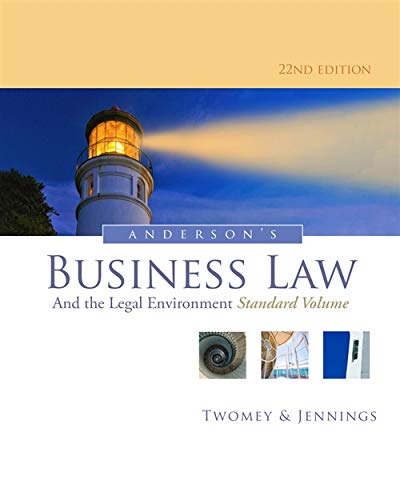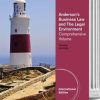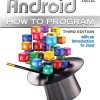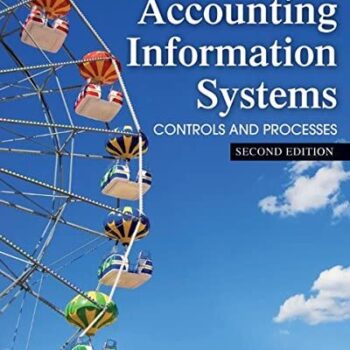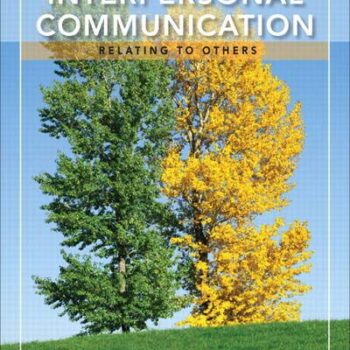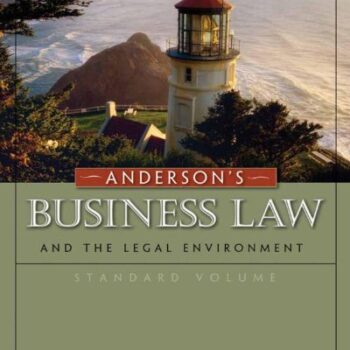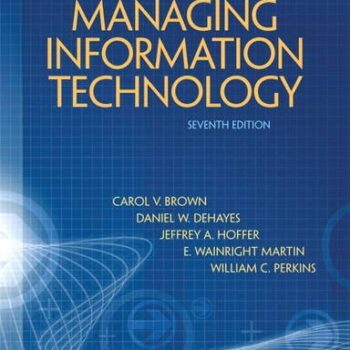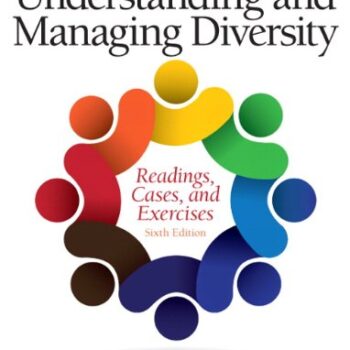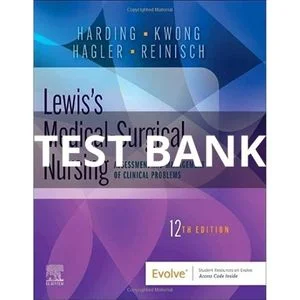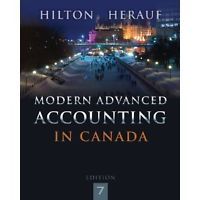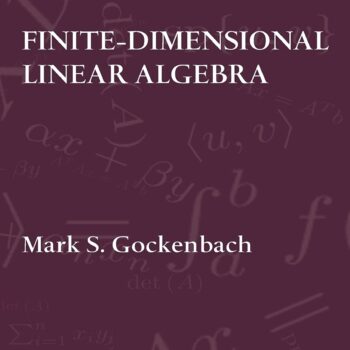The Test Bank for Anderson’s Business Law and the Legal Environment Standard Volume 22nd Edition is a powerful tool to consider as a business law student and seek to improve your grade. This test bank provides a wide variety of practice questions based on the information presented in the textbook to enhance your understanding of legal issues.
What Does the Test Bank Include?
First and foremost, the test bank is not just a chronicle of the textbook contents. It contains:
- Multiple-choice questions, statements, multiple choice: true/false, short answer, and essay-style questions.
- Answers and explanations to the solutions in a decipherable manner for better understanding.
- Bridging the gap between principles and their practical applications and development of exam-orientated critical thinking.
- Coverage of topics like contract law, torts, trademarks, copyrights, and patents, international business, administrative law, and labor relations.
How Can the Test Bank Help You?
This test bank aids you in the following:
- Revision for the examination by way of practical questions that are mapped to the details found in the book.
- Comprehension of the theoretical principles in business through a practical appraisal of citation and case analysis.
- Legal concepts that are gaining importance such as in the CPA professional exam can also be assimilated with the extract of concepts and circumstantial questions.
Key Features of the Test Bank
- Get to it the minute you pay for it: no waiting!
- Runs on a variety of devices like iOS, android, and PCs.
- In case of any difficulty in downloading or using it, you can reach their support team anytime.
- Can be used effectively for self-learning or in a classroom.
This test bank is intended not only to help you in academics but to also give you an insight into business ethics, regulations, contracts, etc. It encompasses key issues dealing with business dispute resolution mechanisms, negotiable instruments, as well as debtor-creditor relations which are all necessary in today’s business environments.
Chapter 1—THE NATURE AND SOURCES OF LAW
TRUE/FALSE
The pattern of rules that society uses to control the conduct of individuals in their relationships is called law.
ANS: TMSC: AACSB Analytic
Law is often defined as the body of principles that courts will enforce.
ANS: TMSC: AACSB Analytic
One of our most important rights is the right to privacy.
ANS: TMSC: AACSB Analytic
The United States Constitution provides that we have a right to be free from intrusions by others.
ANS: TMSC: AACSB Analytic
Several layers of law are enacted at different levels of government to provide the framework for business and personal rights and duties. At the base of this framework of laws is constitutional law.
ANS: TMSC: AACSB Analytic
A constitution is a body of principles that establishes the structure of a government and the relationship of that government to the people who are governed.
ANS: TMSC: AACSB Analytic
Within each state in the United States, only one constitution is in force.
ANS: FMSC: AACSB Analytic
Administrative regulations are a type of law.
ANS: TMSC: AACSB Analytic
In addition to state legislatures and the United States Congress, all cities, counties, and other governmental subdivisions have some power to adopt ordinances within their sphere of operation.
ANS: TMSC: AACSB Analytic
Both Congress and state legislatures enact statutory law.
ANS: TMSC: AACSB Analytic
The law works to cause our society to operate inefficiently.
ANS: FMSC: AACSB Analytic
Jane asserts she has a legal right. Jane is saying she must perform or refrain from performing an act.
ANS: FMSC: AACSB Analytic
Rights always stand alone, without any duties.
ANS: FMSC: AACSB Analytic
Rights guaranteed in the United States Constitution are accompanied by duties.
ANS: TMSC: AACSB Analytic
Court decisions and statutes can take away rights created by the United States Constitution.
ANS: FMSC: AACSB Analytic
The right to be secure against unreasonable searches and seizures conducted by the police is guaranteed by state statute.
ANS: FMSC: AACSB Analytic
The private life of a nonpublic citizen is subject to public scrutiny.
ANS: FMSC: AACSB Analytic
One advantage of our current legal system is that the growth of technology has not created many new laws.
ANS: FMSC: AACSB Analytic
The right to privacy does not apply to intrusions into our privacy using new technology.
ANS: FMSC: AACSB Analytic
Statutes are the only source of law.
ANS: FMSC: AACSB Analytic

